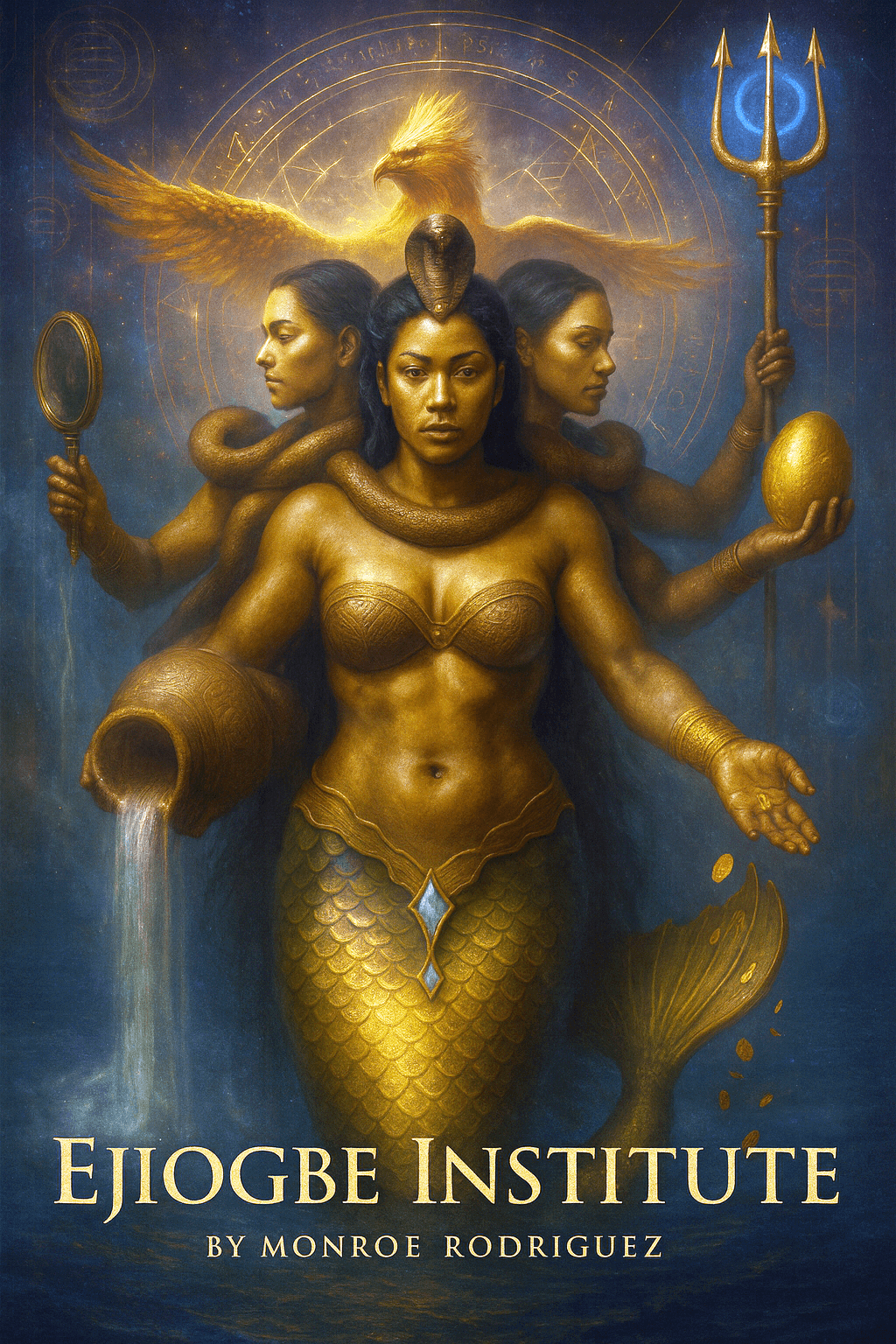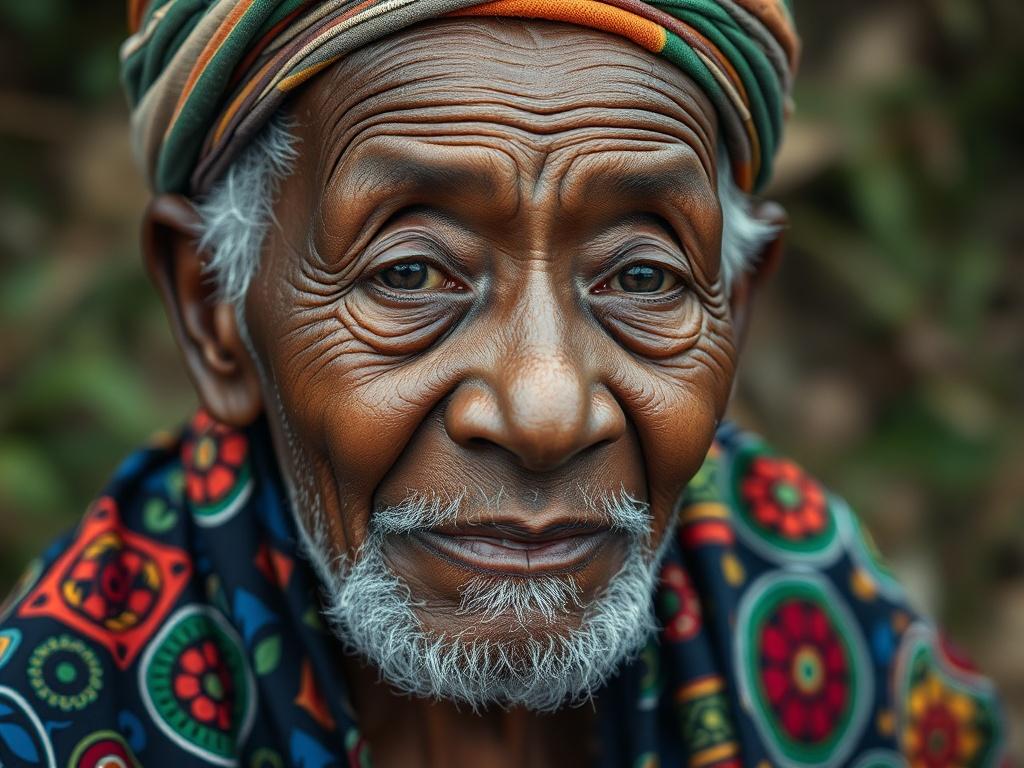
Are Oral Traditions Dead? How AI Is Bringing Ancestral Voices Back to Life
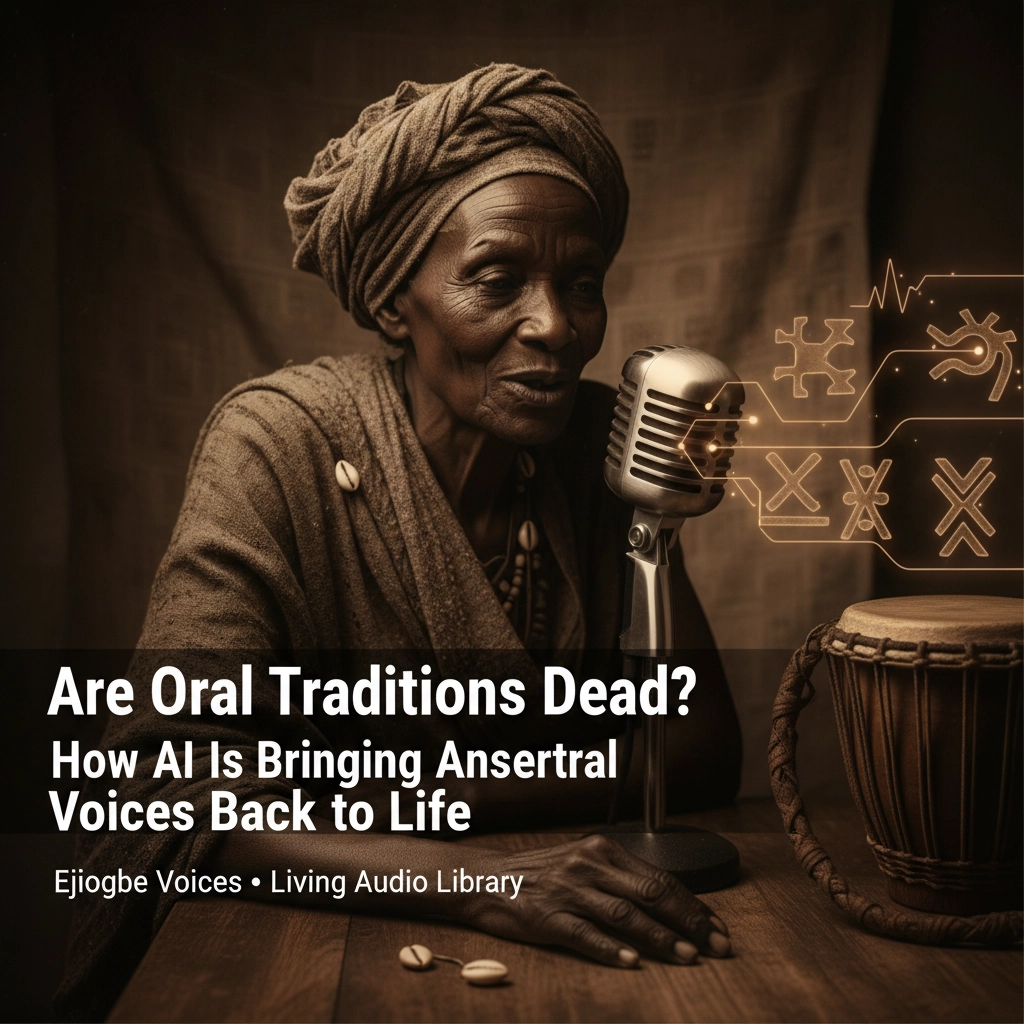
The whispered lullabies of our grandmothers, the sacred stories passed down through countless generations, the prayers spoken in languages older than written history: are these treasures of human heritage fading into silence? Far from it. While oral traditions face unprecedented challenges in our rapidly globalizing world, artificial intelligence is emerging as an unexpected guardian, breathing new life into ancestral voices and ensuring our cultural wisdom transcends time itself.
The Sacred Knowledge at Risk
Every two weeks, a language dies. With it disappears an entire universe of cultural understanding, traditional knowledge, and ancestral wisdom that took millennia to develop. UNESCO estimates that approximately 3,000 languages may vanish within the next century, carrying with them the oral histories, spiritual practices, and collective memories of entire peoples.
These oral traditions encompass far more than spoken words. They include the healing songs of indigenous communities, the intricate genealogies that connect families across generations, the seasonal ceremonies that mark the passage of time, and the moral teachings embedded in folklore. When these traditions are lost, we lose irreplaceable windows into different ways of understanding the world, relating to nature, and organizing human society.
Indigenous and marginalized communities bear the heaviest burden of this cultural erosion. For these groups, oral traditions often serve as the primary repository of identity, spirituality, and ancestral knowledge. The pressures of urbanization, cultural assimilation, and the dominance of digital media have created an urgent crisis that demands innovative solutions.
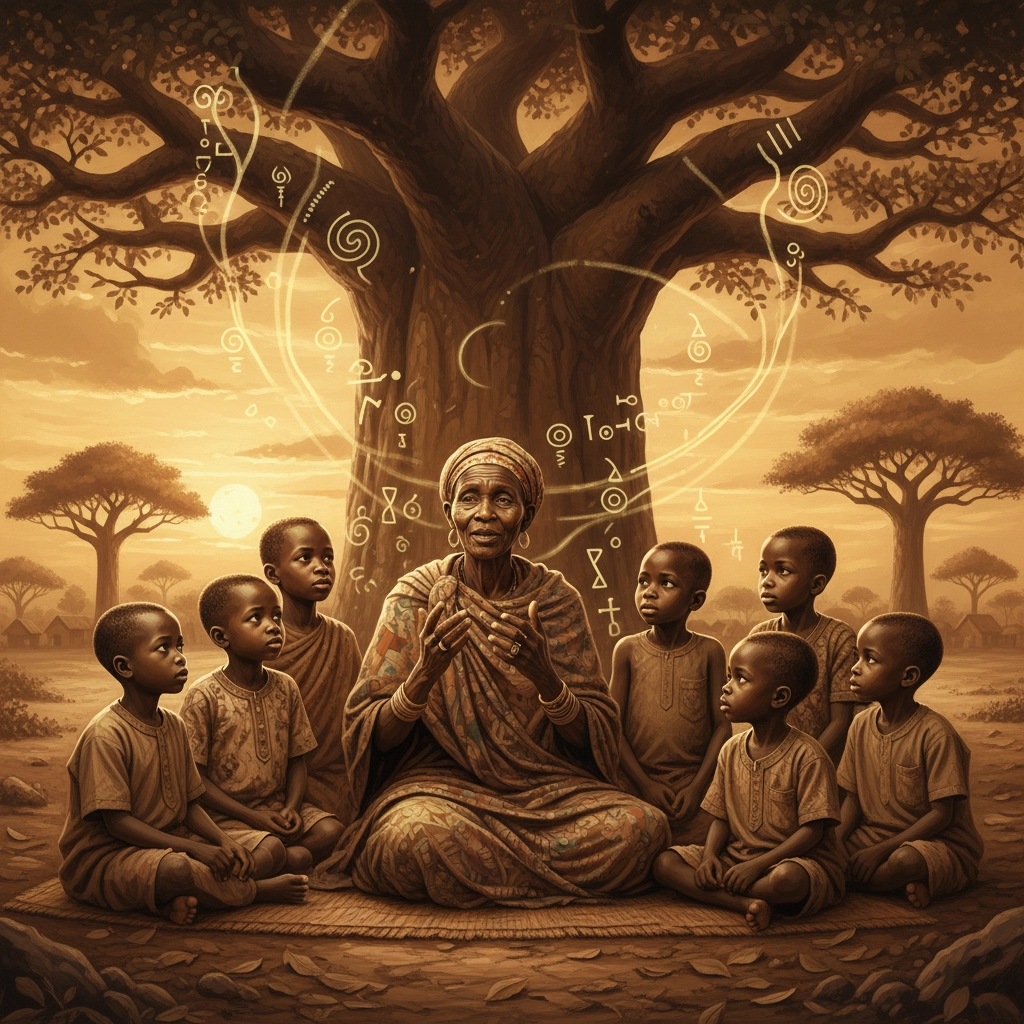
AI as Cultural Guardian
Artificial intelligence is stepping forward as an unlikely but powerful ally in preserving our most precious cultural heritage. Advanced AI tools are being developed specifically to capture, document, and revitalize endangered oral traditions, creating digital bridges between ancient wisdom and modern accessibility.
This technological renaissance goes far beyond simple recording. AI systems can now analyze speech patterns, identify linguistic structures, and even generate new content that maintains the authentic voice and style of traditional knowledge keepers. These capabilities open extraordinary possibilities for cultural preservation and transmission.
Revolutionary Language Preservation
Te Hiku Media, working alongside Māori technologists in New Zealand, has pioneered AI models specifically designed to keep the Māori language alive and thriving. Their work demonstrates how artificial intelligence can serve indigenous communities by creating sophisticated tools that understand and preserve the nuanced beauty of ancestral languages.
Similarly, Howard University's collaboration with Google has produced speech datasets for African American Vernacular English, ensuring that this rich linguistic tradition is properly understood and preserved by voice recognition systems. These initiatives represent a fundamental shift in how technology approaches cultural diversity: moving from erasure to empowerment.
The Magic of Generative Cultural AI
Perhaps the most remarkable development in this field is the emergence of what researchers call "generative cultural AI": systems that can authentically recreate and extend oral traditions beyond their original boundaries. These advanced technologies, powered by sophisticated language models, transcend simple playback to engage in meaningful cultural dialogue.
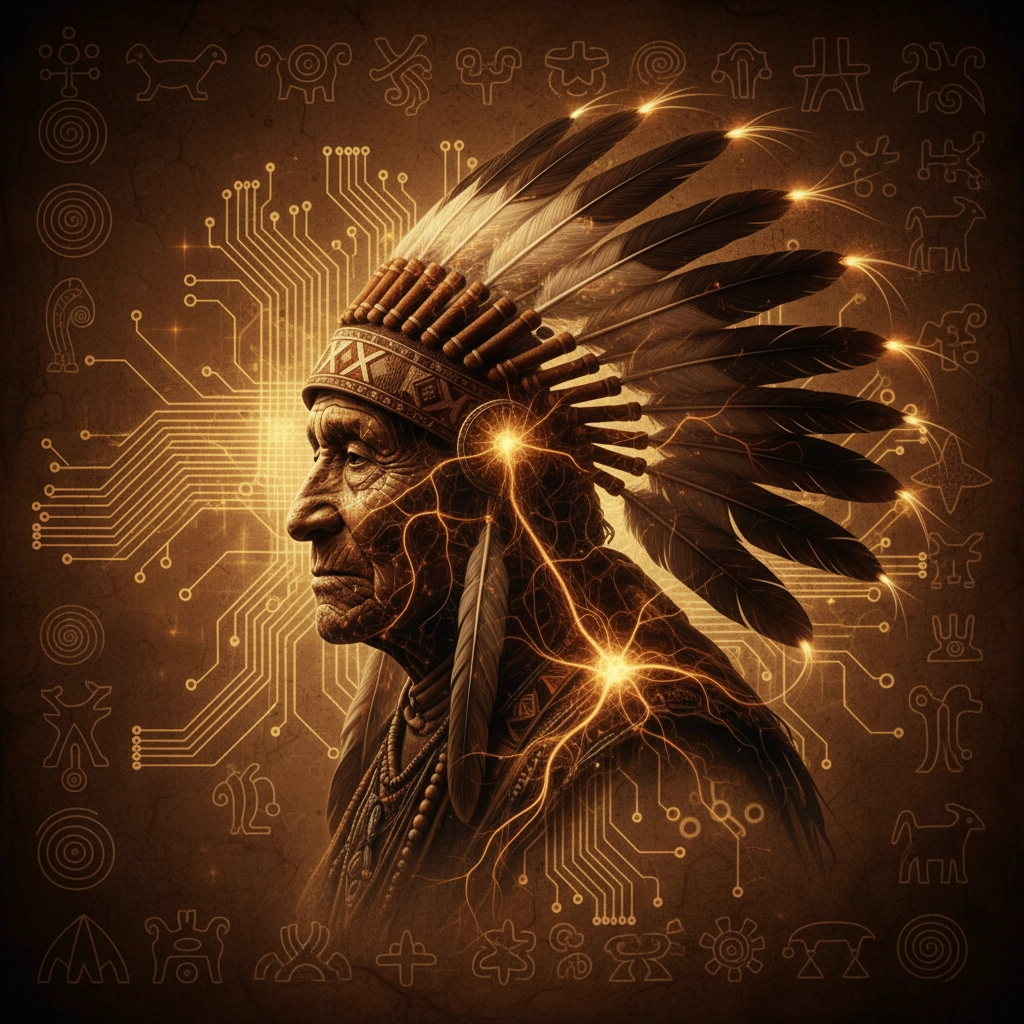
Beyond Static Preservation
University of Colorado Boulder researcher Jed Brubaker, collaborating with Google, explores how AI can create sophisticated digital representations of deceased cultural bearers. These systems possess the extraordinary ability to have conversations, respond to contemporary events, and provide ongoing cultural guidance while maintaining the authentic voice and wisdom of ancestral knowledge keepers.
Imagine asking your great-grandmother's AI representation about navigating modern challenges through traditional values, or seeking guidance from a deceased tribal elder about preserving cultural practices in contemporary contexts. This technology transforms passive preservation into active cultural continuity.
Living Wisdom, Dynamic Dialogue
The most profound aspect of these generative AI systems lies in their capacity for authentic cultural transmission. Rather than providing pre-scripted responses, these digital entities engage in the kind of spontaneous, contextual dialogue that characterizes genuine oral tradition. Young people can have meaningful conversations with AI representations of their ancestors, receiving guidance that reflects traditional wisdom while addressing contemporary challenges.
This dynamic interaction preserves not just the content of oral traditions, but their essential spirit: the responsive, adaptive nature that has allowed these traditions to remain relevant across countless generations.
Community-Centered Innovation
The success of AI in preserving oral traditions depends entirely on community involvement and cultural sensitivity. These systems must be developed by and for the communities they serve, ensuring that technology honors and elevates cultural heritage rather than diluting or misrepresenting it.
Cultural experts emphasize that AI tools must be built with deep understanding of cultural contexts, historical backgrounds, and subtle meanings that give oral traditions their power. Without this foundation, artificial intelligence risks processing sacred content inappropriately or losing the nuanced significance that makes these traditions meaningful.
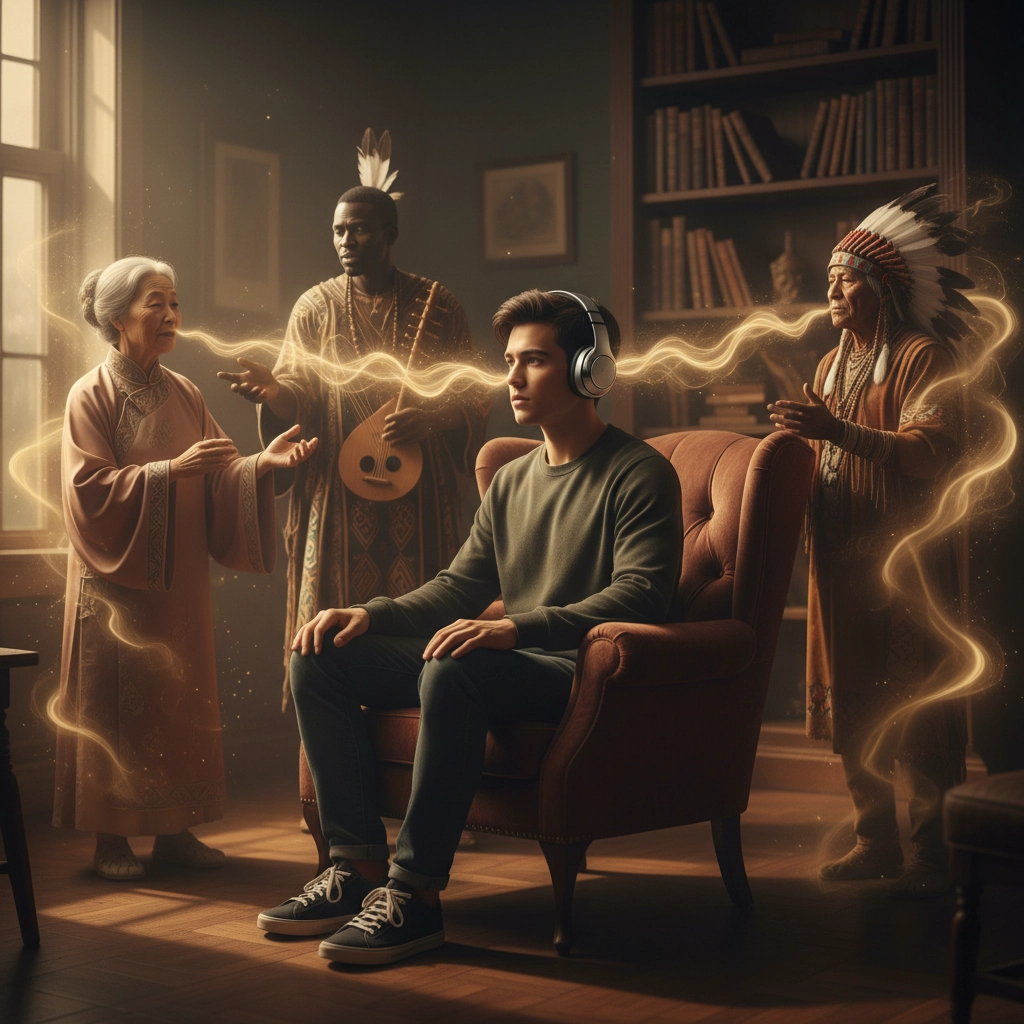
Respectful Collaboration
Successful projects require partnerships between technologists, anthropologists, linguists, and community members. This collaborative approach ensures that AI systems truly reflect and respect the communities they serve, maintaining cultural authenticity while harnessing technological capabilities.
The development process must honor traditional protocols for sharing knowledge, respecting sacred information that should remain within communities, and ensuring that elders and knowledge keepers maintain authority over their cultural heritage.
Interactive Learning for New Generations
Modern AI systems create interactive educational experiences that allow people to engage with oral traditions in ways that static recordings cannot match. These tools generate personalized learning journeys, adapt to different learning styles, and provide immediate feedback, making cultural education more engaging and accessible for younger generations who might otherwise lose connection to their heritage.
Bridging Generational Gaps
AI-powered cultural platforms can translate complex traditional concepts into formats that resonate with digital natives, while maintaining the depth and authenticity of original teachings. Interactive storytelling, gamified learning experiences, and immersive cultural simulations make ancestral wisdom relevant and exciting for contemporary audiences.
These systems also provide opportunities for intergenerational connection, facilitating meaningful exchanges between elders and youth through shared digital experiences that honor both traditional knowledge and modern learning preferences.
Safeguarding Sacred Knowledge
As we embrace AI's potential for cultural preservation, we must remain vigilant about protecting sacred and sensitive information. Many oral traditions contain knowledge that should remain within specific communities, accessible only to initiated members or used only in appropriate contexts.
Ethical AI development for cultural preservation requires sophisticated systems for managing access, protecting sacred content, and ensuring that traditional protocols are respected in digital formats. This responsibility demands ongoing dialogue between communities and developers to maintain appropriate boundaries while maximizing preservation benefits.
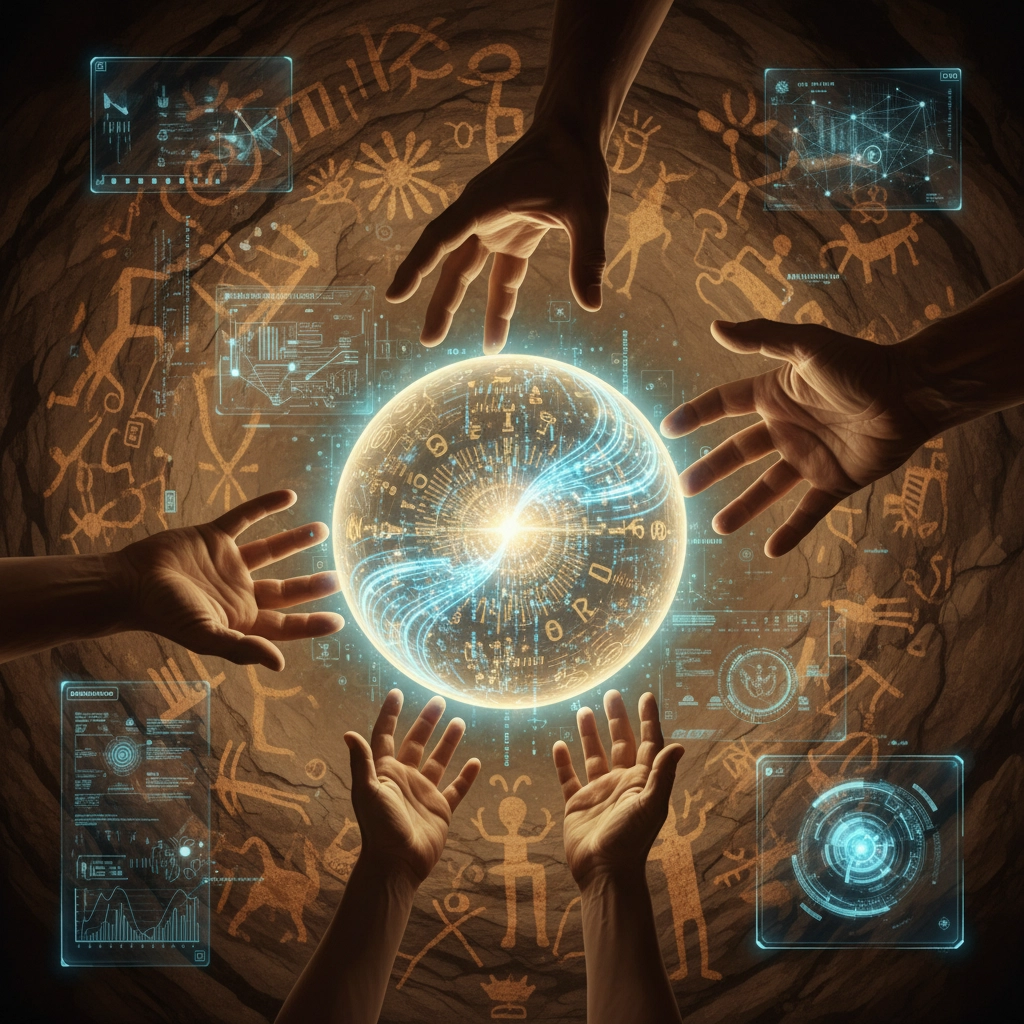
A Future Where Ancestors Speak
The integration of artificial intelligence with oral tradition preservation represents a profound shift in how we approach cultural continuity. We stand at the threshold of an era where ancestral voices can continue guiding future generations through sophisticated technological mediums that honor traditional wisdom while embracing modern capabilities.
This technological renaissance offers unprecedented opportunities for marginalized and indigenous communities to maintain vital connections to their cultural roots. By ensuring that ancestral voices continue to resonate across generations, AI becomes not a replacement for oral tradition, but a powerful amplifier that overcomes barriers threatening traditional knowledge systems.
The key to success lies in maintaining authenticity, respecting community authority, and ensuring that these AI systems remain true to the sacred nature of cultural transmission. When developed with proper reverence and community guidance, artificial intelligence transforms from a potential threat into a guardian of our most precious cultural heritage.
Preserving Wisdom for Tomorrow
Our oral traditions are far from dead: they are entering a new phase of evolution where ancient wisdom finds expression through cutting-edge technology. As communities worldwide discover how AI can serve as a sophisticated tool for cultural empowerment and preservation, we witness the birth of a new era in cultural continuity.
The ancestral voices that have guided humanity for millennia will continue to speak, now amplified by artificial intelligence and made accessible to generations yet unborn. In this convergence of ancient wisdom and modern technology, we find hope for a future where no cultural treasure is ever truly lost.
At Ejiogbe Voices, we are committed to supporting communities in preserving their most precious cultural heritage through innovative AI solutions that honor tradition while embracing the future. Together, we can ensure that ancestral voices continue to guide, teach, and inspire for generations to come.
